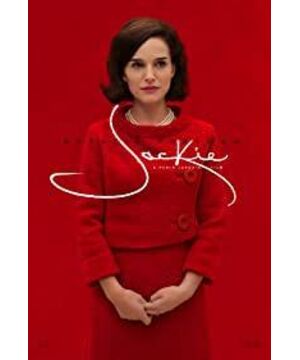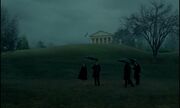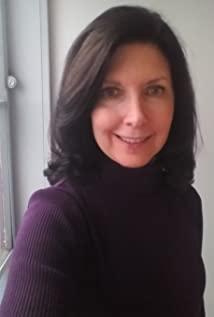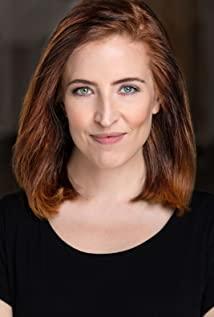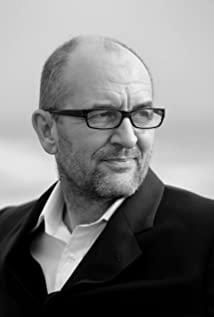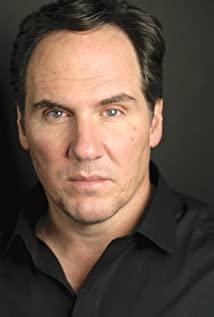"President Kennedy's skull had been shattered by bullets and blood splattered on my clothes, face and hair. Mrs. Kennedy was terrified. In a panic, she tried to climb on the back of the car and reach for a bombed piece. Flying skulls. The scene was appalling," Hill dictated.
Based on the life of former "First Lady" Jacqueline Kennedy, the film focuses on the four days and nights of Jacqueline's life - from the assassination of her husband President John F. Kennedy to the funeral.
Jacqueline Kennedy is one of the youngest first ladies in American history. She was the icon of style, maturity, and drive, and one of the most photographed women of her era. But on November 22, 1963, with the death of her husband Kennedy, her career as a "first lady" for less than three years ended.
"Many women in the world will lose their husbands, but not many of them will have their husbands killed by their side," said Natalie Portman, who played the role in the film "Jackie."
The film adopts a non-linear narrative technique, and a large number of facial close-ups highlight many emotional details of the character of Jacqueline. The whole film is calm and restrained, trying to restore and maintain the authenticity of the biopic, and it can be seen that Natalie Portman is carefully studying Jacqueline's micro-expressions, accents, and movements, combined with her own understanding and interpretation of this image.
But as I said before, there are so many rough close-ups of the faces of the protagonists that they are too forceful. It also makes other people become blurred human flesh in contrast. The whole film seems to be born to highlight the actors, including the frequent close-ups that have been criticized, but also to prove how outstanding Jackie's actor Natalie Portman is in acting, giving people the feeling of "craftsmanship". "Full, the "Oscar Best Picture" and "Oscar Best Actress" are both visual.
Director Pablo Larrain is very smart and ambitious, with the participation of Oscar-winning actress Natalie Portman, and the American national-level theme blessing of the Kennedy assassination. It has made "The First Lady" a lot of attention before it was released. Not to mention, the film has already been selected for the main competition at the Venice Film Festival. In this way, Pablo Laraine is bound to win this year's Oscar statuette.
Back to the film itself, Jacqueline presents us with a textbook template of a "control freak" who wants to know and control every aspect of Kennedy's funeral. Even years after the incident ended, the notes made by reporters in door-to-door interviews would only be released after her approval and revision.
At the same time, Jacqueline is selfish, weak, and vulnerable. Just like I said at the beginning, hug the fragment of my husband's head tightly and try to pick up the other fragments and put them back together. Her husband, the President of the United States. You can't just die without dignity and dignity. Although Jacqueline has also complained, her husband Kennedy rarely spends the night with her, which shows that Jacqueline is not so satisfied with this marriage. But as the "America's First Family" at that time, Jacqueline still felt infinite glory and a high degree of attention.
After her husband's death, try to ignore the government's immediate move to arrange for the vice president to take office, and focus on preparing for her husband's funeral. Trying to maintain the deteriorating situation, personally finding a suitable cemetery, always insisting on the major marches it deserves, and even calming down every time there is opposition. All arrangements are finally over. Losing the crowd, Jacqueline became vulnerable at night listening to her husband's favorite musical, Camelot. She knew very well that she loved Kennedy so much, as first lady, as wife.
Humans are imperfect, not Jacqueline, and certainly not Kennedy. Although Jacqueline's pride and vanity made her forcing reporters to delete this detail of her cigarettes in order to maintain her elegant public image. She also tried to portray her husband Kennedy almost perfectly in the interview. In fact, they are all ordinary people, just doing many things better than us ordinary people and appearing to be great.
Jacqueline was just an ordinary person, an ordinary woman. The control, selfishness, vanity, and vulnerability she displayed were all normal human emotions. And with the development of the plot, Jacqueline's mentality is also quietly changing, from the grieving emotions of helping her husband prepare for the death to the strutting calmness when she finally moved out of the White House. Jacqueline's conversation with a priest during this period played a major role in changing her mood. The priest said: "When a person is searching for meaning, there is a moment when he realizes that there is no answer at all. When you have this terrible, inevitable realization, you either accept it or kill yourself. Or simply stop seeking."
Jacqueline thought about death, but she also believed that "only stupid and willful people commit suicide", so she would definitely not choose this path herself. So she chose to start accepting the fact that her husband had died, that she was no longer the "first lady", that she was going to move out of the White House and embrace an unknown future. So she is no longer the "First Lady" Jacqueline who endured her grief and couldn't get out of her memories. She is now the Jackie who walked out of her pain and returned to reality, and accepted everything calmly.
The title "Jackie" comes from the nickname of Jacqueline. I think this name should show that the director hopes that everyone will treat her with an equal attitude, just like treating an acquaintance around her. There is also a scene in the movie, when Jacqueline and her sister were talking in the corridor, her sister habitually called Jacqueline "Mrs. Kennedy", and was corrected by Jacqueline with a smile and called me Jackie. That's it. This moment also symbolizes that Jacqueline is ready to accept the identity of Jackie as an ordinary person, and the identity of Jacqueline Kennedy as the first lady is a thing of the past. Ordinary Jackie will accept the truth of life and move on.
This article was originally published by the WeChat public account upstream film and television (shangyouyingshi), and it is prohibited to reprint without permission.
View more about Jackie reviews


